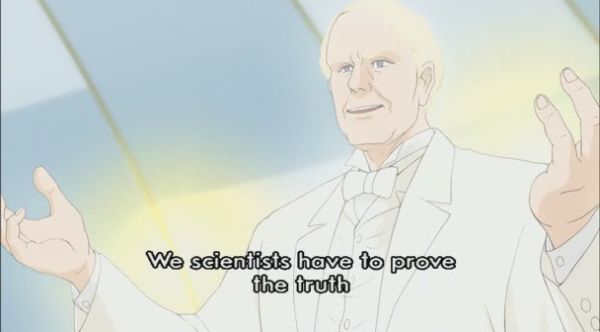If Thomas Edison had not invented the phonograph, would we still have MP3 players today? Â Or would there have been no gramophones, no tape recorders, no cassette players, no CDs, a world where canned sound remained as unimaginable as it was to the Founding Fathers?
I think this may be a matter where the world looks very different depending on whether you are a conservative or a socialist. And since most of these have little or no ability to peek over the fence, I shall take it upon myself to give you something at least a bit closer to the truth.
In the conservative view, history is for the most part a result of a few well-known people who have changed its course in one way or another. Â Mao, Stalin, Hitler. Â Churchill, Lincoln, Washington. Â Jesus, Buddha, Moses. Â Einstein, Newton, Archimedes. Remove any of these or various other “main characters” and history flows in a completely different direction, leading to a world mind-numbingly different from today.
To the socialist, history is a more or less predictable flow of micro-events adding up, driven primarily by economic conditions. Never mind that Marx’ own predictions were about as accurate as weather forecasts by a five year old. After all, Marx himself was limited by the extreme scarcity of information at the time, thus proving that everyone is a child of their own time. In theory it should still be possible to make a fairly good model of how history unfolds under varying general conditions.
One socialist author wrote with sarcasm about Alexander the Great conquering the known world: Â “Did he not even bring a cook?” Â The point is, of course, that Alexander would not be able to conquer even a tiny village alone, much less the Persian empire, Egypt and much of India and Afghanistan. This is true enough. Â But it is equally true that the thousands of men, whether soldiers and cooks, made no serious attempt at establishing a Hellenistic empire before Alexander showed up. Â What he did was give them a focus, a vision, a direction for their abilities. Â They did not simply flow like water – someone had to break the dam that held them.
You could say that the most typical political hero is a vessel for the aspirations of the people, acting to contain and concentrate them, directing them toward a goal they may not have been aware of but generally agree with. Â This also holds true for the political villain, only with different aspirations. Â The difference is not always easy to see if you are very close. Â In any case, the aspirations alone are not enough to create the hero. There must also be a vessel of the required stature. Â Even with tragic flaws, it is required that you be larger than life.
Cultural heroes seem to be even less predictable than military and political ones. Sometimes they seem to embody a particular age, sometimes to usher one in. Â Why do a bunch of them suddenly appear at the same time and in the same cultural area, like in the Renaissance? Â What kind of social engineering do you plan to do to create a larger number of people like Mozart or Michelangelo? How do you produce an Einstein? (Apart from having a number of Jews around.)
The thing is, you must be a fool to think history-changing heroes just conveniently appear when the economic “realities” dictate it, kind of like fools of the past believed that flies and rats were spontaneously created in rotting food. Â (Pasteur, another hero, proved this wrong.) Then again, you are definitely not going to conquer the world without a cook. And even the greatest teacher of philosophy or faith is of little worth if there is no one to hear. It is the interplay between the guides and the guided that make history advance. Â More about that later, perhaps. Â It was actually that I wanted to write about, but you see what happened.

